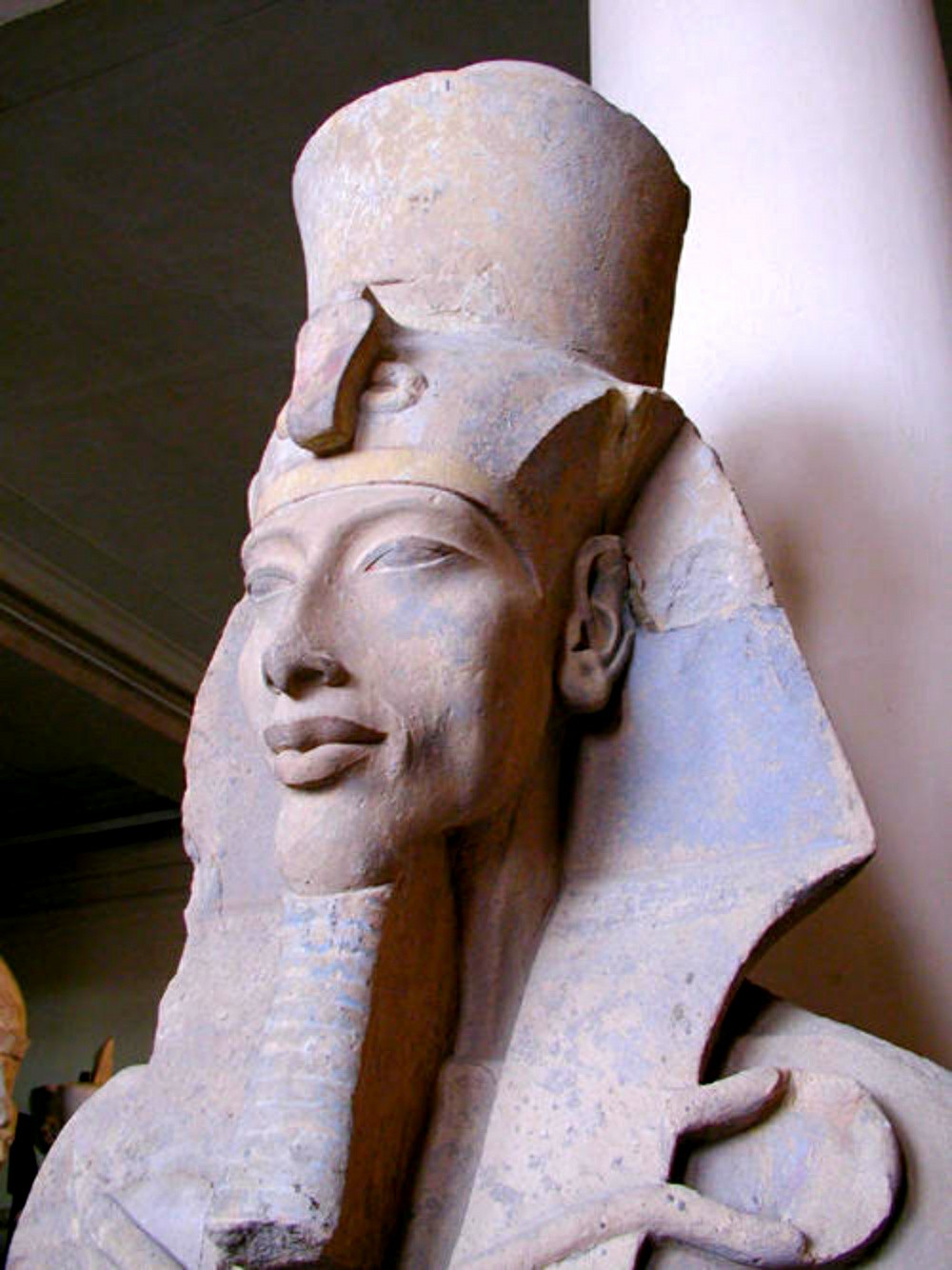Egyptian pharaoh Akhenaton was famous for a failed attempt to create a monotheistic solar cult, but some believe he was the same man as the prophet Moses. There are several references in the Bible which suggest that Moses may have been Egyptian. The Hebrew form of his name, Moshe, is compared with the Egyptian mesu, or mose, which meant “son.”

Ahmed Osman argues that Akhenaton was born in a royal palace, the son of Amenhotep III, but was under threat of assassination from Amun priests because his mother, Queen Tiye, was not the legitimate heiress to the throne. He was smuggled out of the palace and brought up in the household of his Israelite grandfather. Later, Akhenaton moved to Heliopolis for his education and then to the capitol of Thebes at age 16.
He fell in love with his half sister Nefertiti, the heiress to the throne, and was made coregent by Amenhotep. He then antagonized the priests of Amun by building temples to Aten, his new solar god, and eventually building a great temple in the city of Amarna.
All this led to a coup after Amenhotep died and Akhenaton turned against the other Egyptian gods, erasing Amun’s name from temples and tombs and persecuting the clergy. With the priesthood and much of the population rising up against him, Akhenaton was forced to flee with his followers to the southern Sinai. He lived there for 25 years, making an alliance with the Shasu (Midianite) Bedouins.
Later, Akhenaton returned to Egypt to challenge the rule of Pharaoh Ramses, who proved too powerful. Akhenaton attempted a second exodus, planning to escape to Canaan and establish a power base there to prepare to conquer Egypt in the future. But he was cut off by an army under King Seti I, son of Ramses. Akhenaton died on a mountain there.
The story of the failed monotheist pharaoh and his exile supposedly was twisted until it became the story of Moses, helping to establish the Jewish faith. Osman argues that most of the personages described in the Old Testament were actually Egyptian and that the Ten Commandments were based on Spell 125 from the Egyptian Book of the Dead.
Another controversial version of this theory speculates that Akhenaton’s monotheism merely influenced Moses’s preaching and prophecies of one god.



